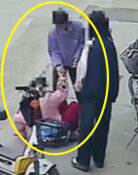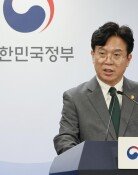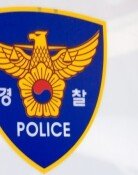Judge Accuses President of Abuse of Pardoning
Judge Accuses President of Abuse of Pardoning
Posted August. 08, 2002 22:22,
Judge currently in office directly criticized Presidents pardoning commemorating the Aug. 15th Independence Day, saying, Presidents exercise of the power may abridge the essence of the Judiciary. Thus, a heated debate is expected.
This is the first time judges officially took issue with the pardoning power to which only President is entitled. In the past, judges just discussed this matter as an internal agenda.
Judge Chong Jin-kyung (27th class of Bar Exam passers) at the Seoul District Court, who has criticized the promotional system for judges based on evaluations of them, posted an essay on August 7th on the courts web site. In the essay titled Presidents Pardoning Power Is Unbounded? he pointed out, the pardoning power has fallen from its intended purposes of national harmonization and social justice to the status of a tool for maintaining and strengthening the power of a government.
He also criticized, dirty officials and politicians involved in numerous kinds of corruption have been pardoned to the convenience of the people in power. In addition, general pardons have been granted at random. Through these, pardoning pulled the status of law down to that of a governing tool.
He also added aiming at President, Have you ever thought about the devastating feeling judges get when their endeavored, labored rulings are blown up into pieces by the arbitrary exercise of pardoning?
Judge Chong also made an issue of the silence of the Supreme Court at a congressional hearing. On July 25th, congressmen asked for the opinion of the Supreme Court as to the pardons granted. The Court replied, It is the power solely belonging to the president. We consider it improper to make comments on it. Mr. Chong argued that he could not understand the Courts response since it is the Court that should warn against any act that might abridge the essence of the Judiciary.
He continued to argue, Granting pardons should be exercised under extremely exceptional circumstances with strict procedures and standards in mind. The administration should try to find the ultimate solution in building up the publics trust and decreasing the need for pardoning through rational implementation and reorganization of relevant laws.
Chief Judge Lee Chong-sang (24th clasee) at the Sungnam branch of the Suwon District Court also posted a similar essay on the same day. He proposed ways to modify the Pardoning Act such as an establishment of a politically neutral pardoning screening board. In his essay he said, I cant even count how many times I have felt frustrated and angry at the abuse of pardoning power.
This administration has granted 7 major pardons including pardoning of 340,000 people in 2000. In addition, it granted expunging of penalty points on traffic violators last month.
Jung-Eun Lee lightee@donga.com







